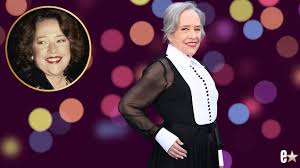
From Misery to Matlock: How Kathy Bates Keeps Reinventing Herself
Kathy Bates isn't just an actress; she's a chameleon. She's a force of nature capable of transforming from a cowering, delusional fanatic into a shrewd, sharp-tongued lawyer with effortless grace. This extraordinary range, combined with an undeniable talent for inhabiting her characters, explains her enduring and prolific career, a journey marked by constant reinvention, taking her from the chilling confines of "Misery" to the comforting, predictable world of "Matlock." Bates' ability to not only survive but thrive in Hollywood, a notoriously fickle industry, speaks to a unique combination of adaptability, hard work, and an unshakeable belief in the power of storytelling.
The name Kathy Bates often conjures the image of Annie Wilkes, the unforgettable antagonist of Stephen King's "Misery." This role, for which she won an Academy Award, cemented her place in the pantheon of iconic screen villains. Bates imbued Annie with a terrifying blend of naivety and madness, a disturbingly believable combination that left audiences on the edge of their seats. The film became a cultural touchstone, and Bates' performance became the benchmark for depicting obsessive fandom gone tragically wrong. This role, however, could have easily defined her career, trapping her in a cycle of similar, if less nuanced, antagonist roles. But Bates refused to be pigeonholed.
In the years following "Misery," Bates actively sought roles that would challenge her and showcase her versatility. She ventured into comedy with films like "Dolores Claiborne" and "Primary Colors," demonstrating a knack for dry wit and impeccably timed delivery. She embraced dramatic roles in films like "Titanic" and "Fried Green Tomatoes," where she portrayed strong, independent women who faced adversity with unwavering resilience. These roles showcased her ability to evoke empathy and vulnerability, qualities that starkly contrasted with the chilling persona of Annie Wilkes. Bates deliberately chose projects that allowed her to explore different facets of her talent, consciously breaking away from the image that had initially propelled her to stardom.
This commitment to reinvention extended beyond film. Bates embraced television, consistently landing roles that showcased her range and charisma. From her recurring role as Jo Bennett on "The Office" to her Emmy-winning performance as the ghost of Delphine LaLaurie in "American Horror Story: Coven," Bates consistently impressed audiences with her ability to embody a wide spectrum of characters. Each role, meticulously crafted and deeply felt, allowed her to explore new emotional landscapes and push the boundaries of her performance.
Perhaps one of the most compelling examples of Bates' ability to reinvent herself is her recent casting in the "Matlock" reboot. A modern reimagining of the classic legal drama, the show features Bates in the titular role, stepping into the shoes of the iconic Andy Griffith. This transformation, from the terrifying Annie Wilkes to the shrewd and folksy Madeline Matlock, is a testament to Bates' remarkable range. While the original series offered comfort and predictable storytelling, the reboot promises to inject a fresh perspective and a modern sensibility, with Bates bringing her own unique brand of charisma and intelligence to the role.
The enduring success of Kathy Bates lies not only in her talent but also in her unwavering dedication to her craft and her willingness to take risks. She has consistently refused to be defined by a single role or genre, actively seeking opportunities that challenge her and allow her to grow as an actress. Her journey from the chilling confines of "Misery" to the familiar comfort of "Matlock" is a testament to her adaptability, her resilience, and her unwavering belief in the power of reinvention. Kathy Bates is more than just an actress; she is an artist who constantly seeks to explore the complexities of the human condition, leaving an indelible mark on the landscape of film and television. Her career serves as an inspiring reminder that with talent, hard work, and a willingness to embrace change, reinvention is not just possible; it's essential for lasting success.
